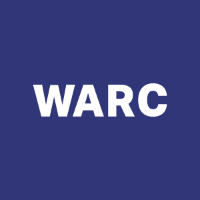Advertisers are having to rethink the way they invest in paid media and take greater responsibility for their investments rather than outsourcing the task to agencies, an industry figure has argued.
In a WARC Best Practice paper, Media Transformation: How to take a new approach to media, fit for the digital age, Tom Denford, co-founder of the management consultancy ID Comms, explains that the need for Media Transformation has been driven by issues around transparency and safety in the digital media supply chain.
But it’s about more than just the desire to understand this, he adds: “it’s also a response to a fundamental shift in how media is actually bought and sold.”
The old media world was focused on scale and this, he contends, created a world where media was seen as a commodity and agencies as suppliers, resulting in a race to the bottom on price.
The same has been true of the digital media environment, where inventory is increasingly sold on an auction basis and advertisers have focused less on the context and quality of media than the buying the cheapest possible media impressions.
“The permanent structural transformation underway in the model for media buying from a scale mass negotiation to biddable inventory, requires advertisers to urgently consider their own media operating models and internal structures,” Denford states.
Primarily that requires “a new internal media narrative”, which forces marketing and procurement teams to look beyond media being simply a cost and rather an investment in growth; they will have to think strategically about what they want media to do for their business.
Data and machine learning will allow marketers to understand not just the price of media but the value of each media impression to their business, says Denford – and then to dictate the price of media (for example via an auction) rather than obsess about the discount achieved.
CMOs can then assess what their own organisation needs to do and design a roadmap for change. “At this point, external knowledge is essential,” says Denford. “No business can or should solve the Media Transformation journey from scratch.”
Having implemented internal change, the next step is to engage external agency partners who will need to understand the process and the potential impact on their ways of working.
Flexibility from both sides is essential, Denford stresses. “Media Transformation never really ends because change is the only constant in media and you will be making a commitment to continuous improvement over time.”
This article was originally published on WARC, on 8 March 2018.
Source: ID Comms.




